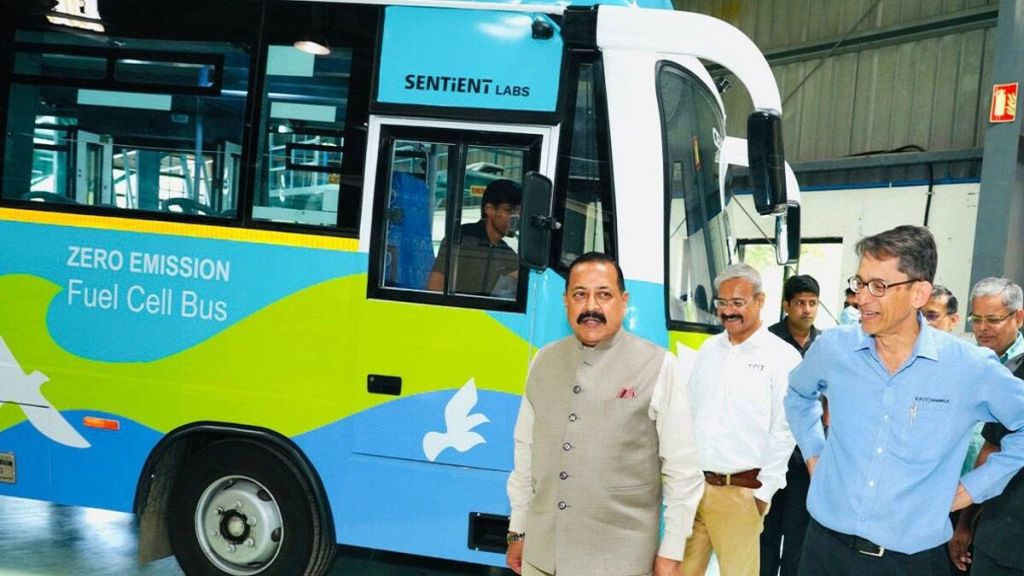Union Minister of State Jitendra Singh launched India’s first indigenously developed Hydrogen Fuel Cell Bus on Sunday. The bus has been developed by KPIT-CSIR in Pune. Elaborating on how these buses will work, Singh said the fuel cell utilises hydrogen and air to generate electricity for powering the bus and the only effluent from the bus is water, therefore “making it possibly the most environmentally friendly mode of transportation”.
Singh said the green hydrogen is an excellent clean energy vector that enables deep decarbonisation of difficult-to-abate emissions from the refining industry, fertiliser industry, steel industry, cement industry and also from the heavy commercial transportation sector.
Also Read | Climate change likely to reduce India’s solar, wind energy potential: Study
For comparison, a single diesel bus plying on long-distance routes typically emits 100 tons of CO2 annually and there are over a million such buses in India, the Minister said. Singh pointed out that about 12-14% CO2 emissions and particulate emissions come from diesel powered heavy commercial vehicles and these are decentralised emissions and hence difficult to capture.
Singh further said that the high efficiency of fuel cell vehicles and the high energy density of hydrogen ensures that the operational costs in rupees per kilometre for fuel cell trucks and buses are lower than diesel powered vehicles and this can bring freight revolution in India. “Moreover, fuel cell vehicles also give zero green-house gas emissions,” he added.
The Minister said that by achieving these goals, India can pole-vault from being a net importer of fossil energy to becoming a net exporter of clean hydrogen energy and thus, providing global leadership to India in hydrogen space by becoming a large green hydrogen producer and supplier of equipment for green hydrogen.
Also Read | Year after rejuvenation drive, Bengaluru lake’s water quality shows improvement
He lauded the joint development efforts of KPIT and CSIR-NCL and pointed out that the technology prowess of Indian scientists and engineers is no less than the best in the world and also at much lower costs.
Singh also inaugurated the Bisphenol-A pilot plant in CSIR-NCL and said these pilot plants have successfully demonstrated novel process technologies developed by NCL under CSIR’s Covid-19 mission program and Bulk Chemicals mission program. Bisphenol-A (BPA) is an important feedstock for the production of epoxy resins, polycarbonate and other engineering plastics, the Minister explained.


